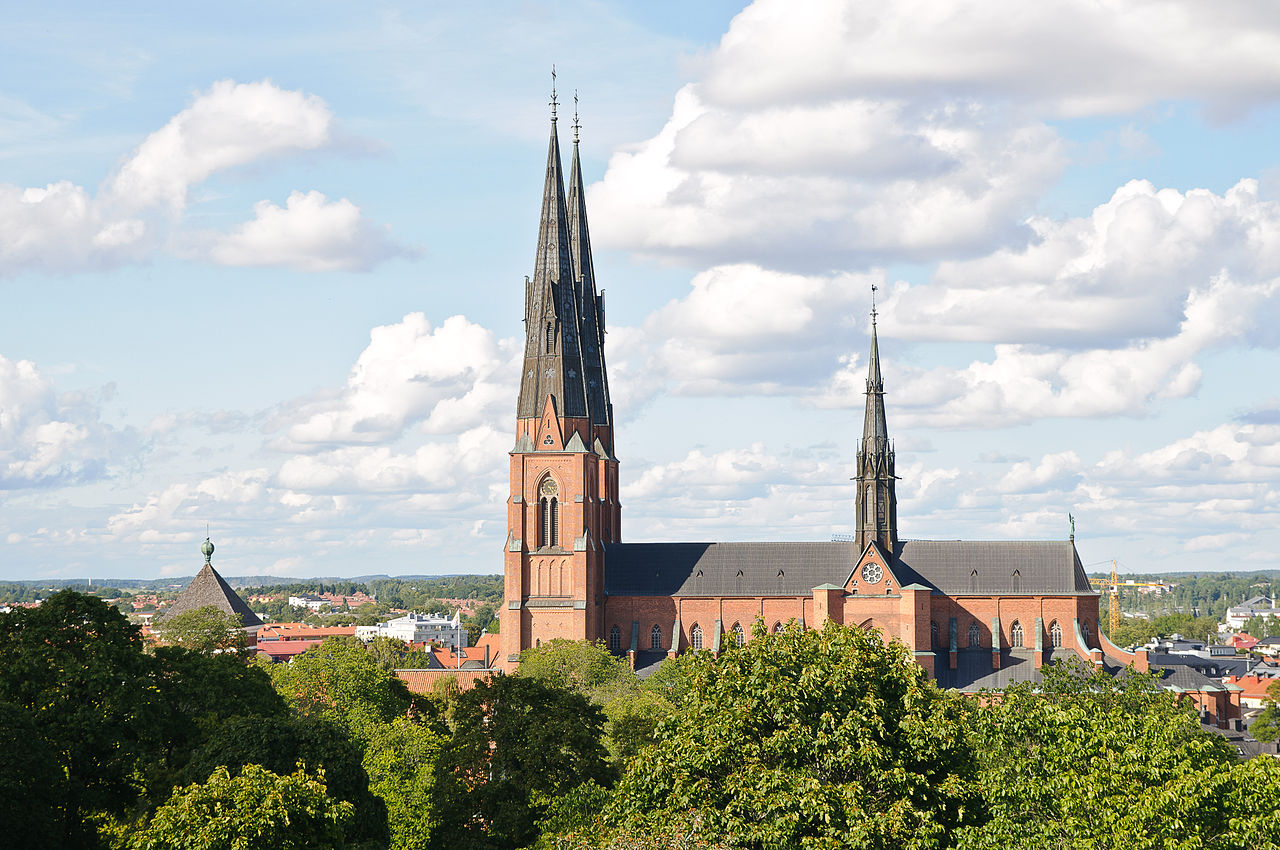In this mailing:
- Nima Gholam Ali Pour: Sweden: The Church that Spreads Hate
- Amir Taheri: The Real Cost of Turkey's Kurdish Obsession
by Nima Gholam Ali Pour • October 20, 2019 at 5:00 am
Although Good Shepherd's Swedish School is marketed by the Swedish Jerusalem Society as a school that promotes peace, Tobias Petersson, Director of the think tank Perspective on Israel, has revealed that the textbooks used by Good Shepherd's Swedish school have jihadi content that encourages holy war against the State of Israel. Also, in those textbooks, Jews are described as liars and corrupt.
Maps in the schoolbooks and on the walls of Good Shepherd's Swedish School do not show the State of Israel; instead the outline of Israel had been displaced by the identical outline of the "State of Palestine".
That such a large institution as the Church of Sweden gathers church collections throughout the country to support a school that spreads hatred and warmongering should doubtless be seen as enormously problematic.
The practice also shows that not only does Swedish aid go to organizations that spread hate, but also that large institutions in Sweden have opened back-channels to send millions of Swedish kronors every year to schools, such as Good Shepherd's Swedish School, that also spread hate.
To understand how harmful this situation is, can you imagine what would happen if one of Israel's -- or another country's -- largest institutions were raising money to support a school that taught children to hate Sweden and celebrate terrorists who murdered Swedes? It would, of course, be a great scandal and totally unacceptable. But in Sweden, this is exactly what is happening now.

That such a large institution as the Church of Sweden gathers church collections throughout the country to support a school that spreads hatred and warmongering should doubtless be seen as enormously problematic. Pictured: Uppsala Cathedral, the headquarters of the Church of Sweden. (Image source: Jarvis/Wikimedia Commons)
The Swedish Jerusalem Society, founded in 1900, has devoted its mission to charity work in Jerusalem and Bethlehem. For several decades, however, the Swedish Jerusalem Society has been hostile to the Jewish State of Israel. The association has three official goals in the Palestinian territories:
- Strengthen the position of women
- Contribute to peace and reconciliation
- Strengthen the Christian minority
Despite these noble goals, the Swedish Jerusalem Society publishes a journal in which the content, although often about Israel, has a tone that is extremely hostile and biased. In the journal's first issue of 2018, one can read an interview with a Palestinian school principal, in which she states:
"We have suffered for so many years, and may suffer for a few more years, but it is unfair to give our capital to anyone else. Why not share it?"
by Amir Taheri • October 20, 2019 at 4:00 am
The end of First World War left the Kurds in an even worse situation than before. President Woodrow Wilson's promise of "self-determination" was soon forgotten, leaving behind the dream of independence on the Kurdish side and the fear of Kurdish secession in the Ottoman camp as reconstituted as the Turkish Republic under Mustafa Kemal pasha (Ataturk).
In much of history, at least until recently, systems sustained by ultra-nationalist and/or nativist ideologies have always seen "otherness" as a threat rather than an opportunity of cultural and social enrichment.
In other words, one can commit genocide as long as one makes a speech in favor of Palestine and attends a Shi'ite chest-beating ceremony.

The best outcome that Turkey might expect from the war it has started against the Kurds, is to be extricated from that hornet's nest with a minimum of damage. Pictured: Turkish soldiers prepare their tanks before starting to move towards the Syrian border, on October 18, 2019 in Ceylanpinar, Turkey. (Photo by Burak Kara/Getty Images)
A classical dictum cited by Clausewitz, the father of war studies as an academic discipline, tells us that starting a war is often easy while ending it is always difficult. Does that dictum apply to the war that Turkey has started against the Kurds by invading Syria? Right now, the answer is that no one knows. What is certain, however, is that the best outcome that Turkey might expect, is to be extricated from that hornet's nest with a minimum of damage.
While the war could be blamed on Turkish President Recep Tayyip Erdogan's autocratic style of decision-making, the deeper roots of the conflict must be sought in Turkey's centuries-old Kurdish obsession.
|
|



No comments:
Post a Comment